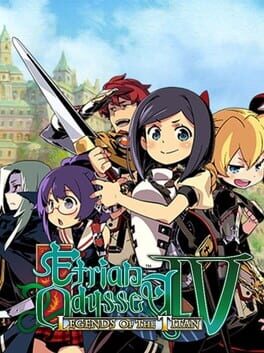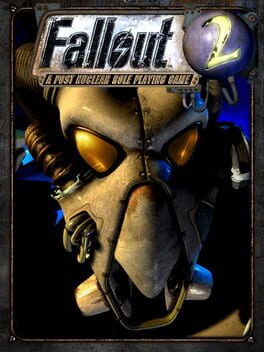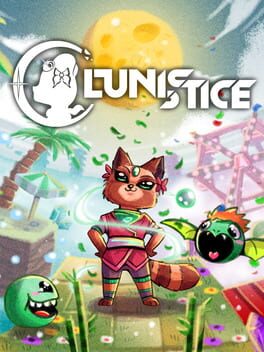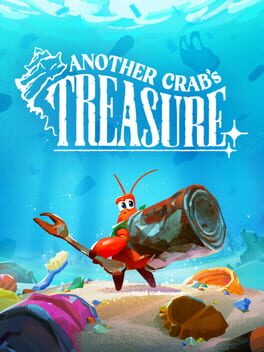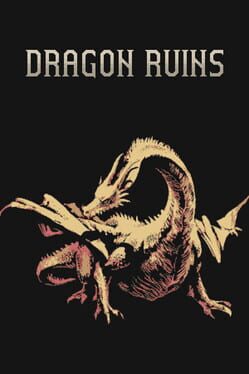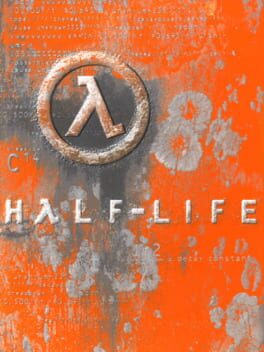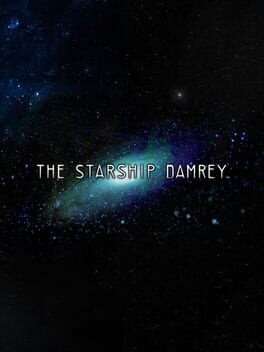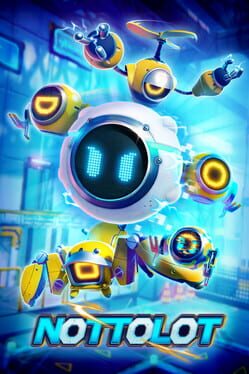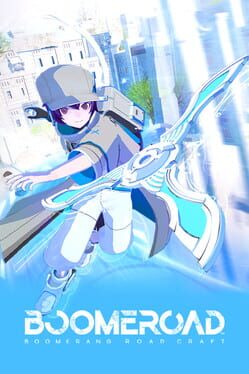frogheaven
Tears of the Kingdom is built on ecosystems. Interconnected living things that support one another. As seen in the relationship between the depths, the land, and the sky. Or in how this game relates to Breath of the Wild. Or in how the game existed in my own life. Ecosystem is the word I kept coming back to as I played, diving down to and jumping up to interwoven systems and doing it over and over again, in a cycle that felt propulsive rather than stagnating.
Eventually, I had to stop. I played this game on and off for a year, coming back and going away and constantly surprised at how easy it was to simply enter again as if no time had passed. But eventually I could feel that my time with the game was coming to end, though there were still places to see and people to meet.
That's something beautiful about Tears of the Kingdom. Its naturalistic approach to game design is holistic, and extends to every part. So when I felt that I wanted to leave the game, to fight Ganondorf and put an end to my time in this version of Hyrule, there was no feeling that I was cutting it short.
Earlier this year I spent 100 hours or so playing Final Fantasy VII Rebirth, a vastly inferior game, and so much of my time there could be attributed to a sort of coerced compulsion. I couldn't help myself completing checklists and fast traveling between map markers, and by the end of it I felt totally wrung out.
In Tears of the Kingdom I never for a single moment felt compelled by the game itself to do anything in particular. I simply went where it felt good to go next.
I can seldom think of a game where I've felt so little the pressure of design artifice. The tone here is almost lackadaisical, a set of systems, tools, places, characters just set out here for you to pass through as you will, or as you wont. It's up to you, you're just another part of the ecosystem.
Eventually, I had to stop. I played this game on and off for a year, coming back and going away and constantly surprised at how easy it was to simply enter again as if no time had passed. But eventually I could feel that my time with the game was coming to end, though there were still places to see and people to meet.
That's something beautiful about Tears of the Kingdom. Its naturalistic approach to game design is holistic, and extends to every part. So when I felt that I wanted to leave the game, to fight Ganondorf and put an end to my time in this version of Hyrule, there was no feeling that I was cutting it short.
Earlier this year I spent 100 hours or so playing Final Fantasy VII Rebirth, a vastly inferior game, and so much of my time there could be attributed to a sort of coerced compulsion. I couldn't help myself completing checklists and fast traveling between map markers, and by the end of it I felt totally wrung out.
In Tears of the Kingdom I never for a single moment felt compelled by the game itself to do anything in particular. I simply went where it felt good to go next.
I can seldom think of a game where I've felt so little the pressure of design artifice. The tone here is almost lackadaisical, a set of systems, tools, places, characters just set out here for you to pass through as you will, or as you wont. It's up to you, you're just another part of the ecosystem.
There is a famous story, perhaps apocryphal, about when Friedrich Nietzsche went to see Richard Wagner's opera Tristan und Isolde. At the end of the four hour performance, he burst out of the opera house supposedly gasping and yelling "I need air!".
Tristan und Isolde is four hours of musical tension that is only released in the very finale of the performance. There are unfinished cadences set up in the beginning of the opera that are not resolved until the very end.
Liebestod, or love-death, is the final music of Tristan und Isolde. Isolde is holding the dead body of Tristan and she herself dies, the moment the music resolves. And finally, after four hours of torture, everything is at rest. It is both orgasmic and suicidal.
Notably, Nietzsche loved Tristan und Isolde even after his relationship with Wagner turned sour. He knew, perhaps, that it was great because it was torturous. Like a love so good it kills.
The entire point of Etrian Odyssey IV is tension and release. Toying with how much the player can be pushed without breaking them, and allowing them moments of brief, ecstatic relief. Returning to town, finally coming out of a dungeon, though you've only got one party member still living. There are few games that so deeply understand and successfully deploy tension and release.
Going into the depths only to return back to town, heal up, and go back down again is among the most timeless patterns in video games. As such, it can act as the perfect stage onto which designers can cast all manner of creative terrors.
I love Etrian Odyssey IV. And yet, this is the first game I am reviewing before having finished it. I can't do it. I'm running out of the opera house gasping for air, but at the intermission rather than the conclusion.
It's the rhythm and the cycle, which is at once both the reason I love the game and the reason I cannot currently go back. I'm thirty hours in and probably not even halfway through. The game stretched me so thin that it wrapped me several times over around all ten fingers and I enjoyed every second.
Going back to town in Etrian Odyssey IV is about as pitifully restful as coming home and falling directly into bed after a ten hour shift, knowing you are just going back to another ten hour shift tomorrow and the next day and the next. That's the brilliant and terrible thing about the game's use of relief. It is so slight, so minuscule, that you are constantly kept on the razor's edge.
So I'm surrendering, for now. But I'll be back. That's the cruel thing about it. A tension so tortuously sweet that it can only be resolved by Liebestod.
Tristan und Isolde is four hours of musical tension that is only released in the very finale of the performance. There are unfinished cadences set up in the beginning of the opera that are not resolved until the very end.
Liebestod, or love-death, is the final music of Tristan und Isolde. Isolde is holding the dead body of Tristan and she herself dies, the moment the music resolves. And finally, after four hours of torture, everything is at rest. It is both orgasmic and suicidal.
Notably, Nietzsche loved Tristan und Isolde even after his relationship with Wagner turned sour. He knew, perhaps, that it was great because it was torturous. Like a love so good it kills.
The entire point of Etrian Odyssey IV is tension and release. Toying with how much the player can be pushed without breaking them, and allowing them moments of brief, ecstatic relief. Returning to town, finally coming out of a dungeon, though you've only got one party member still living. There are few games that so deeply understand and successfully deploy tension and release.
Going into the depths only to return back to town, heal up, and go back down again is among the most timeless patterns in video games. As such, it can act as the perfect stage onto which designers can cast all manner of creative terrors.
I love Etrian Odyssey IV. And yet, this is the first game I am reviewing before having finished it. I can't do it. I'm running out of the opera house gasping for air, but at the intermission rather than the conclusion.
It's the rhythm and the cycle, which is at once both the reason I love the game and the reason I cannot currently go back. I'm thirty hours in and probably not even halfway through. The game stretched me so thin that it wrapped me several times over around all ten fingers and I enjoyed every second.
Going back to town in Etrian Odyssey IV is about as pitifully restful as coming home and falling directly into bed after a ten hour shift, knowing you are just going back to another ten hour shift tomorrow and the next day and the next. That's the brilliant and terrible thing about the game's use of relief. It is so slight, so minuscule, that you are constantly kept on the razor's edge.
So I'm surrendering, for now. But I'll be back. That's the cruel thing about it. A tension so tortuously sweet that it can only be resolved by Liebestod.
1998
Before starting the game I looked up the estimated hour count and noted with dread that it was about 3 to 4 times longer than the first game. I loved the first, but part of its success lies in its relative simplicity and brevity.
My fears were partially correct here. Fallout 2 is Fallout but stretched out. Sometimes that works. There's more complexity here in quest and narrative design. Sometimes it doesn't work. The writing quality is immensely inconsistent and there's a lot to do that just isn't very interesting. Importantly, the game is not nearly as funny as it or its fans think it is. Except for the bit about the doctor with the intelligent radscorpion. That was charming.
No one is playing these for the atrocious combat so its unfortunate that the most significant change this makes to its predecessor's combat is increasing enemy counts beyond all good reason and taste.
Still, the game is fascinating. I found myself carried through the overly long experience by my own interest in the historical and contextual importance of this game and the series as a whole. Its interesting to see what it was really doing, free from the skewed memories of nostalgic fans.
My fears were partially correct here. Fallout 2 is Fallout but stretched out. Sometimes that works. There's more complexity here in quest and narrative design. Sometimes it doesn't work. The writing quality is immensely inconsistent and there's a lot to do that just isn't very interesting. Importantly, the game is not nearly as funny as it or its fans think it is. Except for the bit about the doctor with the intelligent radscorpion. That was charming.
No one is playing these for the atrocious combat so its unfortunate that the most significant change this makes to its predecessor's combat is increasing enemy counts beyond all good reason and taste.
Still, the game is fascinating. I found myself carried through the overly long experience by my own interest in the historical and contextual importance of this game and the series as a whole. Its interesting to see what it was really doing, free from the skewed memories of nostalgic fans.
2022
Soulslikes often tend to poorly mimic Fromsoft and fail to do anything original. Not the case here. Surprisingly difficult and flexible. A hellishly tight parry and yummy buffet of abilities, magic, and shells.
This one has its own identity. Its cute until its not. Beyond the Dark Souls jokes and nautical puns, the writing is heated and all too relevant. The indie game scene continues to be an anti-capitalist beacon in an otherwise bleak reality. Looking at the state of the games industry in 2024, it isn't any wonder why.
This one has its own identity. Its cute until its not. Beyond the Dark Souls jokes and nautical puns, the writing is heated and all too relevant. The indie game scene continues to be an anti-capitalist beacon in an otherwise bleak reality. Looking at the state of the games industry in 2024, it isn't any wonder why.
2024
Exquisite. A distilled dungeon, providing only the absolute essentials. Room for player imagination is what really makes a game tick. Wireframe walls can overpower UE5 realism any day if you give yourself up to your own frightening thoughts.
The eternal question: another room or back to town? Tension persists even with auto battles. All set to music that takes me back to clubs that were themselves like dungeons.
The eternal question: another room or back to town? Tension persists even with auto battles. All set to music that takes me back to clubs that were themselves like dungeons.
1997
A moody game. Not the most interesting or original post-apocalypse, but certain choices- a score influenced by Aphex Twin and Brian Eno, a drab and lusterless color palette- give the imagination a lot to work with.
Its a solemn and sinister joy to roam this wasteland, which feels ancient both in design and in-world. The esoteric wrinkles of the game design are flavorful. Games have since converged on a unified idea of "design best practices". Immensely boring. Fallout bears almost none of that and is better for it.
Do not let rumors of its brutality scare you away. Read the manual. Save every other step. You'll be fine.
Its a solemn and sinister joy to roam this wasteland, which feels ancient both in design and in-world. The esoteric wrinkles of the game design are flavorful. Games have since converged on a unified idea of "design best practices". Immensely boring. Fallout bears almost none of that and is better for it.
Do not let rumors of its brutality scare you away. Read the manual. Save every other step. You'll be fine.
2024
1998
The music is sublime, as are many of the aesthetic choices. The simplicity of the set up is also delicious. Otherwise, the shooting is missing a certain something that earlier games like Doom had figured out.
It all feels like a fan-made campaign built inside a multiplayer editor. Considering what goes on to happen with the mod scene, perhaps that is exactly how it should feel.
It all feels like a fan-made campaign built inside a multiplayer editor. Considering what goes on to happen with the mod scene, perhaps that is exactly how it should feel.
2013
How to do a lot with a little. A brilliant insight into what we lose as handheld-specific design is largely left behind. The 3DS is perhaps the best, and last, example of how technological limitations breed creativity.
This game knows when and how to leave the player wondering and wanting. Dead Space may be more visceral, but The Starship Damrey is more interesting.
This game knows when and how to leave the player wondering and wanting. Dead Space may be more visceral, but The Starship Damrey is more interesting.
2011
Love to bask in the warmth of a great platformer, but Mario has never done much for me. The sterilizing Nintendo touch saps joy and I have no nostalgia for anything associated.
I like the subtle weirdness of this one. It's quick and to the point and there's an enjoyable simplicity. Bosses are never interesting in Mario so that the ones here are basically all the same feels more like a concession to that fact rather than a misstep.
Also, the way this game plays with perspective is more interesting than anything Wonder did.
I like the subtle weirdness of this one. It's quick and to the point and there's an enjoyable simplicity. Bosses are never interesting in Mario so that the ones here are basically all the same feels more like a concession to that fact rather than a misstep.
Also, the way this game plays with perspective is more interesting than anything Wonder did.
2024
2024
If you are coming here expecting good storytelling, love yourself more. Square largely doesn't understand what makes Final Fantasy interesting.
... Except when they do. Rebirth's combat is the best in the series. The character writing and moments are what RPG dreams are made of.
Cut out all the fluff from this and Remake and you'd have two-thirds of one solid game. I guess financials and masturbatory narrative tendencies prohibit reasonable decision-making.
This game is a study in totally unrestrained excess. For all that entails, both good and bad.
... Except when they do. Rebirth's combat is the best in the series. The character writing and moments are what RPG dreams are made of.
Cut out all the fluff from this and Remake and you'd have two-thirds of one solid game. I guess financials and masturbatory narrative tendencies prohibit reasonable decision-making.
This game is a study in totally unrestrained excess. For all that entails, both good and bad.
2024

